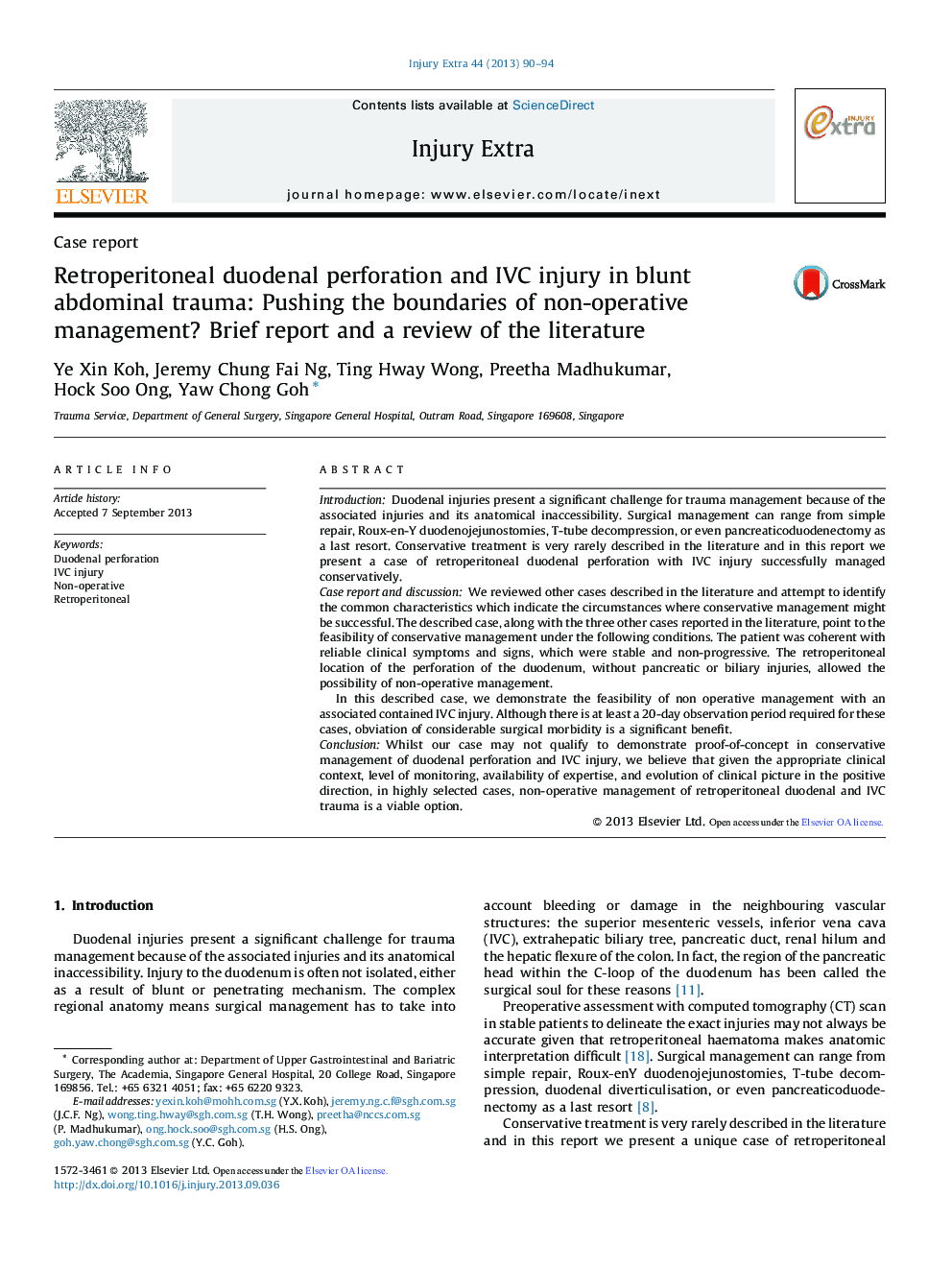| Article ID | Journal | Published Year | Pages | File Type |
|---|---|---|---|---|
| 3243401 | Injury Extra | 2013 | 5 Pages |
IntroductionDuodenal injuries present a significant challenge for trauma management because of the associated injuries and its anatomical inaccessibility. Surgical management can range from simple repair, Roux-en-Y duodenojejunostomies, T-tube decompression, or even pancreaticoduodenectomy as a last resort. Conservative treatment is very rarely described in the literature and in this report we present a case of retroperitoneal duodenal perforation with IVC injury successfully managed conservatively.Case report and discussionWe reviewed other cases described in the literature and attempt to identify the common characteristics which indicate the circumstances where conservative management might be successful. The described case, along with the three other cases reported in the literature, point to the feasibility of conservative management under the following conditions. The patient was coherent with reliable clinical symptoms and signs, which were stable and non-progressive. The retroperitoneal location of the perforation of the duodenum, without pancreatic or biliary injuries, allowed the possibility of non-operative management.In this described case, we demonstrate the feasibility of non operative management with an associated contained IVC injury. Although there is at least a 20-day observation period required for these cases, obviation of considerable surgical morbidity is a significant benefit.ConclusionWhilst our case may not qualify to demonstrate proof-of-concept in conservative management of duodenal perforation and IVC injury, we believe that given the appropriate clinical context, level of monitoring, availability of expertise, and evolution of clinical picture in the positive direction, in highly selected cases, non-operative management of retroperitoneal duodenal and IVC trauma is a viable option.
